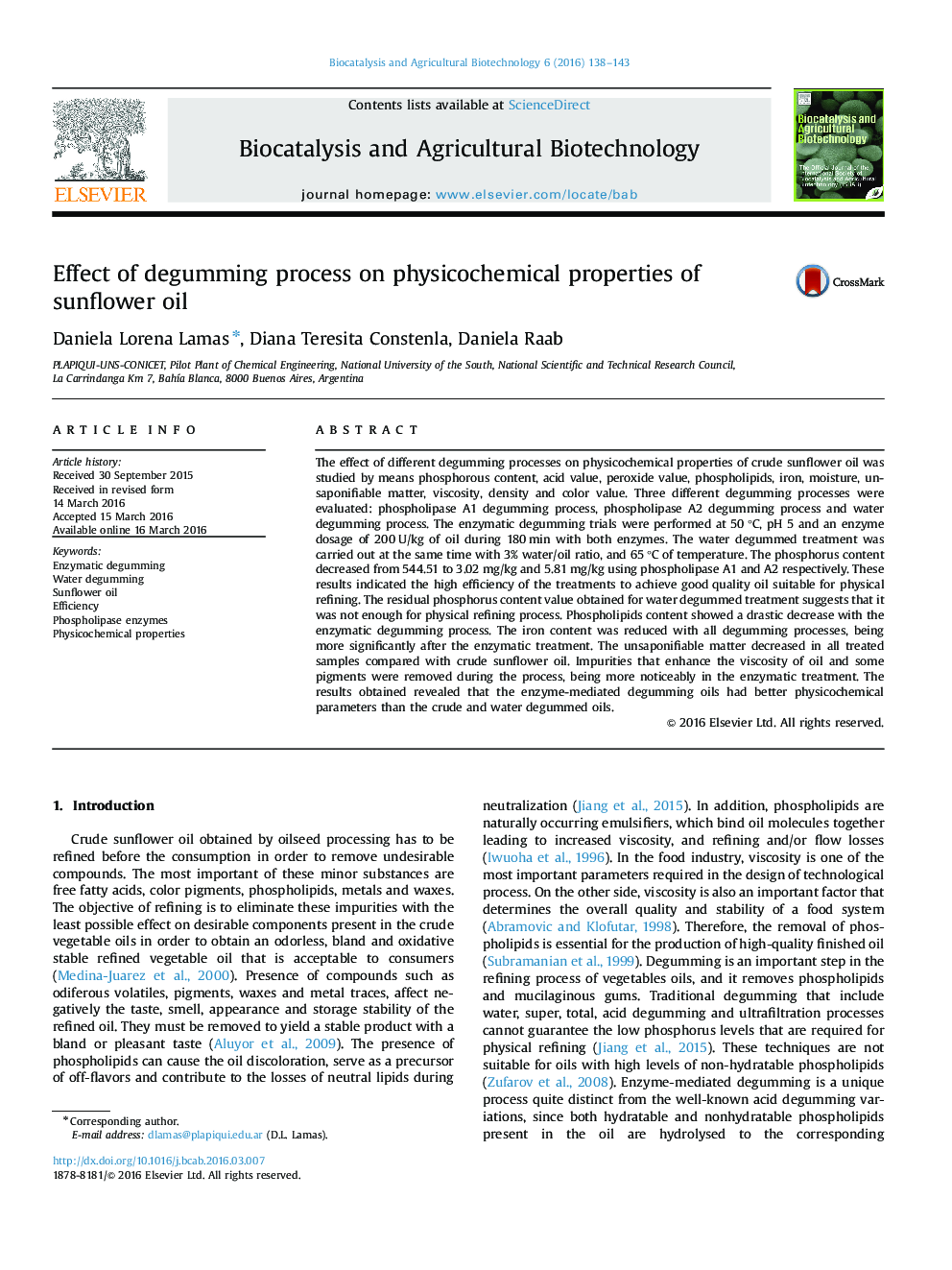| Article ID | Journal | Published Year | Pages | File Type |
|---|---|---|---|---|
| 2075390 | Biocatalysis and Agricultural Biotechnology | 2016 | 6 Pages |
The effect of different degumming processes on physicochemical properties of crude sunflower oil was studied by means phosphorous content, acid value, peroxide value, phospholipids, iron, moisture, unsaponifiable matter, viscosity, density and color value. Three different degumming processes were evaluated: phospholipase A1 degumming process, phospholipase A2 degumming process and water degumming process. The enzymatic degumming trials were performed at 50 °C, pH 5 and an enzyme dosage of 200 U/kg of oil during 180 min with both enzymes. The water degummed treatment was carried out at the same time with 3% water/oil ratio, and 65 °C of temperature. The phosphorus content decreased from 544.51 to 3.02 mg/kg and 5.81 mg/kg using phospholipase A1 and A2 respectively. These results indicated the high efficiency of the treatments to achieve good quality oil suitable for physical refining. The residual phosphorus content value obtained for water degummed treatment suggests that it was not enough for physical refining process. Phospholipids content showed a drastic decrease with the enzymatic degumming process. The iron content was reduced with all degumming processes, being more significantly after the enzymatic treatment. The unsaponifiable matter decreased in all treated samples compared with crude sunflower oil. Impurities that enhance the viscosity of oil and some pigments were removed during the process, being more noticeably in the enzymatic treatment. The results obtained revealed that the enzyme-mediated degumming oils had better physicochemical parameters than the crude and water degummed oils.
